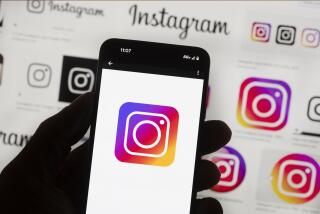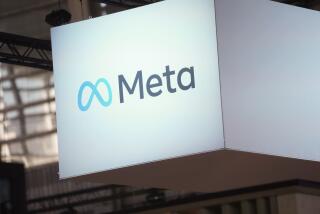Facebook wants to offer Internet service to remote areas by drone
Social media giant Facebook seeks to bring the Internet to remote areas of the world with its latest project involving a huge drone it has built.
The Menlo Park, Calif.-based firm said Thursday that its Connectivity Lab has completed work on an unmanned aircraft it calls Aquila with the ability to send Internet signals from the sky to users below.
The company hopes that someday the drone -- the size of a Boeing 737 aircraft -- will be able to fly above remote areas and serve millions of people worldwide that currently don’t have access to the Internet or Facebook.
The Aquila places Facebook one step closer to achieving this goal by using new laser technology that can deliver Internet access 10 times faster than any previous device, Facebook CEO Mark Zuckerberg said in a statement.
Zuckerberg said these new technologies will continue to be tested during the next few months, and the objective is to eventually provide underserved areas with a network of drones, each one providing Internet access within a 31-mile radius.
A Facebook spokeswoman said the company is discussing regulations with local governments where the drones would be flying, but she said she couldn’t comment on specifics yet.
In order for this to work, the firm said, a ground station will transmit radio signals to the aircraft and then the signals will be relayed to users on the ground.
The aircraft has a 140-foot wingspan, similar to the Boeing 737, but it’s constructed with lightweight carbon fiber and can stay airborne for months by using solar power, officials said.
“Facebook has a very, very big and bold mission, which is to make the world more open and connected,” said Yael Maguire, Connectivity Lab director of engineering. Its goals are “primarily focused on regions where there just isn’t Internet connectivity, and that’s why we’re really invested in solar-powered aircraft and lasers as a mechanism to do that.”
Facebook isn’t the only corporation that wants to expand Internet coverage to hard-to-reach areas all over the world.
Google’s Project Loon has a similar ambition, but it instead uses balloons that float in the stratosphere to form a communication network. These balloons intend to connect people to the Internet through LTE-enable phones and other devices.
Although Project Loon is still in the development phase, the Aquila has very realistic goals, said Drone Analyst CEO Colin Snow. He said that Facebook’s project is “technically feasible and highly probably,” but that there are always possibilities for problems.
Potential issues for the Aquila could arise from unexpected maintenance requirements or disruption from solar flares, but there should be minimal concern regarding solar power or Internet connectivity, according to Snow.
Facebook will clearly benefit from more Internet users in the long run, but Zuckerberg said that this initiative isn’t driven by profits and that the focus is providing economic and social benefits to developing nations.
nick.shively@latimes.com
Twitter: @nick_shively






